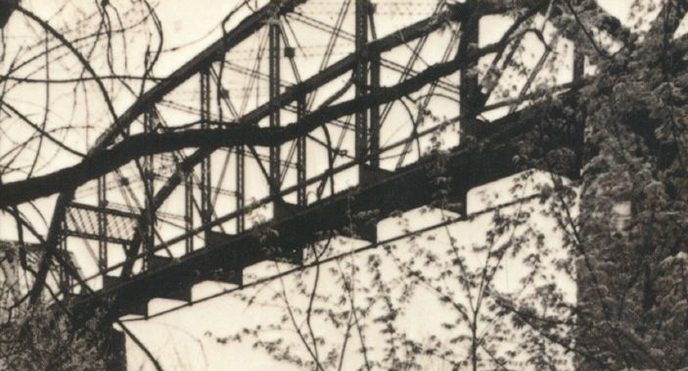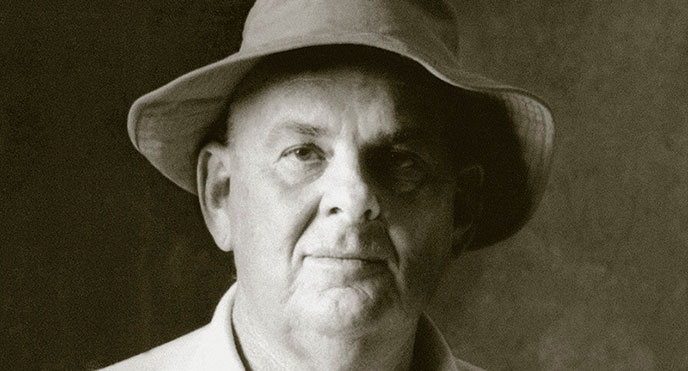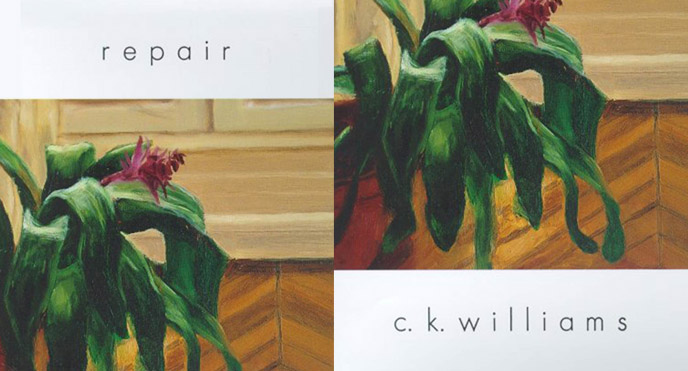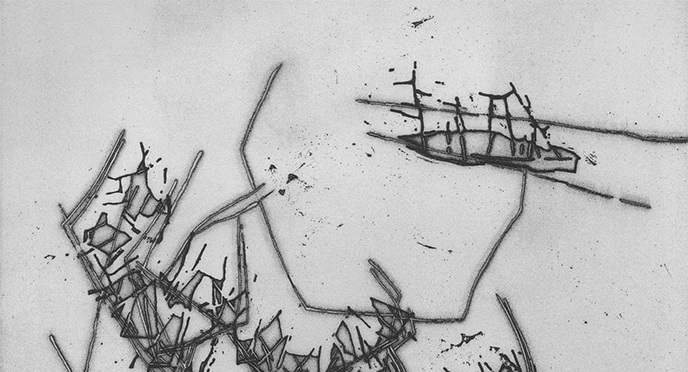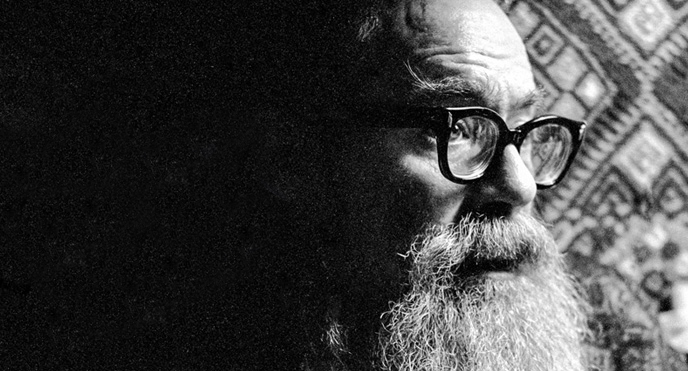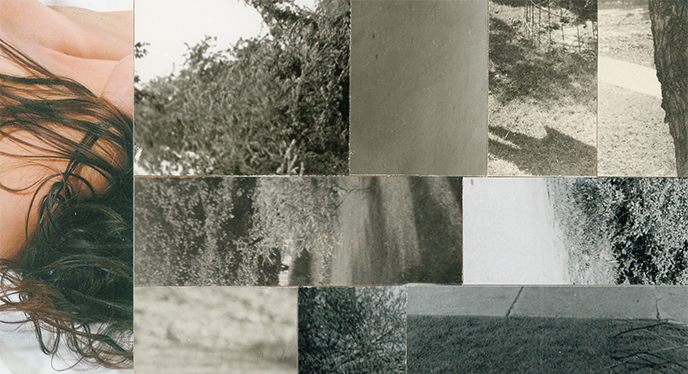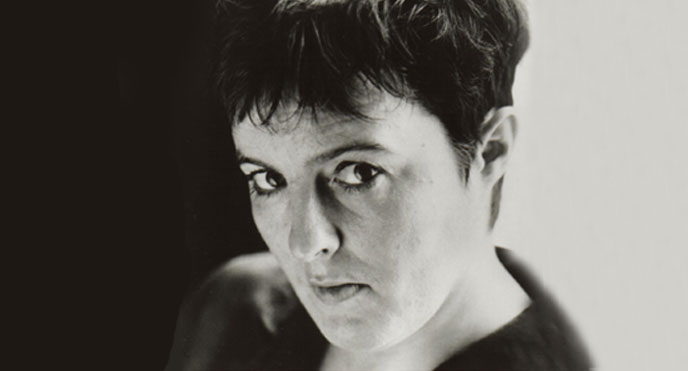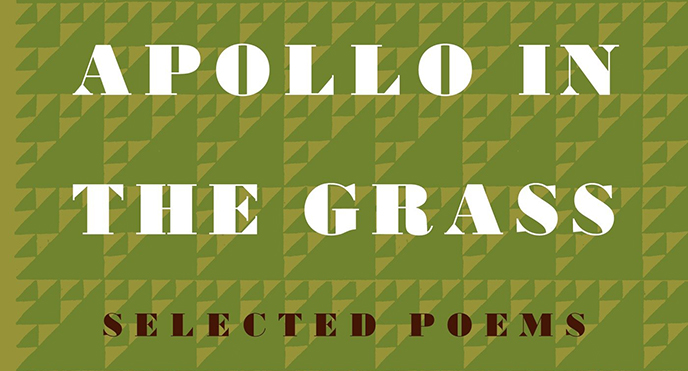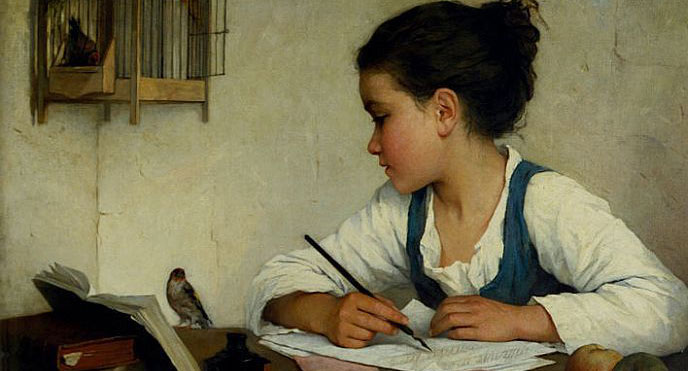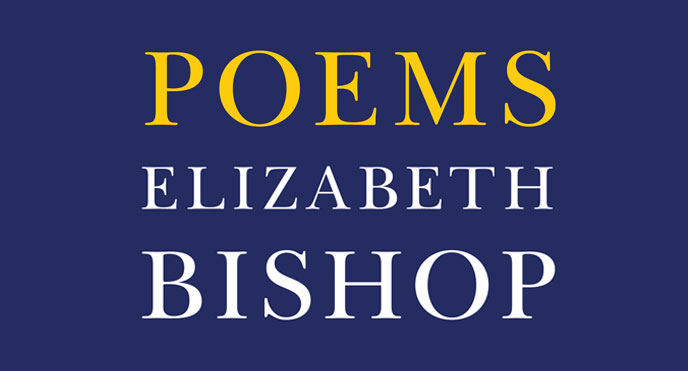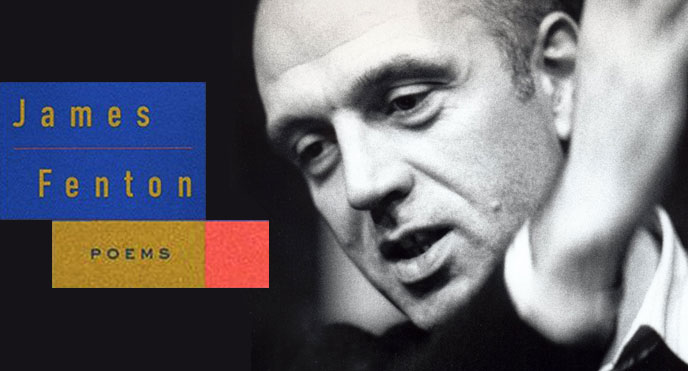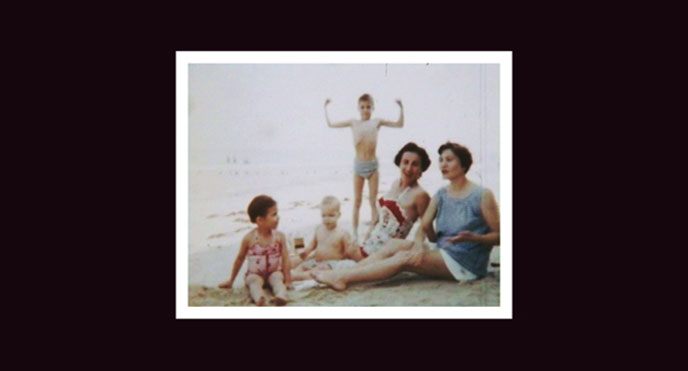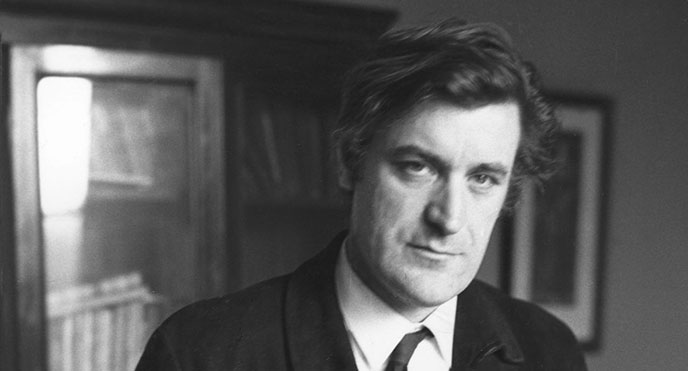Often considered one of James Wright’s most optimistic poems, “Two Hangovers” is appropriately two-minded and torn. Asking for a silence it doesn’t entirely want, it finds a joy it didn’t expect. —Brad Johnson Two Hangovers Number One I slouch in bed. Beyond the streaked trees of my window, All groves...
-
-
I first read Hamlet in Jamaica. The bleak daylight surrounding my high school Happy Grove was like the faded glow of an old photograph. Rain was expected; it never came. There might’ve been thunder, or that could just have been the pages turning in...
-
Like Ezra Pound’s Cantos, Christopher Logue’s “account” of the Iliad is an imagist epic. It is surely less various and original than its modernist precursors, but it can’t be matched for sheer pleasure. With plot and character given, Logue attends to local intensities and...
-
Rarely is our first encounter with a poem an aural one. I was introduced to C. K. Williams’s "Invisible Mending" twelve years ago when the poet read it aloud at a memorial service for one of his oldest friends, the artist Sam Maitin. His...
-
Paul Celan's language never tires. It is constantly propelling us through the webs of images in his poems. Celan uses language to break the conventional barriers of language itself. —Laura Buccieri span.small { font-variant: small-caps; } Sackcloth-mold, tower-high. Eye slot for...
-
Dream Song 29 is not an obviously optimistic poem. How could it be, when it begins, "There sat down, once, a thing on Henry's heart / só heavy"—and immediately, any reader whose heart has ever been burdened, brought low (and it is hard to...
-
At his best, Wang An-Shih has a way of taking small moments and projecting them out into the infinite. Consciousness tangles into itself, the human blends with the natural. “Following Thoughts” invokes an exciting kind of interobjectivity. Hinton is my favorite translator of Chinese...
-
Maureen N. McLane’s poem “Haunt” does just that. Or perhaps more accurately, it is itself haunted, by the two versions of the anonymous Child Ballad No. 26 (“The Three Ravens” / “The Twa Corbies”) that the author acknowledges as reference points in her notes....
-
Who could resist this invitation to eavesdrop on the fabulous? The title for Ange Mlinko’s most recent book, Marvelous Things Overheard, is taken from a collection of anecdotes and wonders, falsely attributed to Aristotle, which explain, in tight descriptive units, marvels of the...
-
In Cuba, poetry is in the air one breathes. It is in the music, in the humor, in the political debates, in the desire to be fully in the present and in the recognition that history is implacable. There is a poetry within, written...
-
Politics is "a glove-puppet" of images twisting emotion twisting reason. What wordplay, what music, what cargo! Duffy reminds us of the grave degradation of our political landscape. How can it be fixed? Dare we say POLITICS? —Erin Goss Politics How it makes your face a stone that aches...
-
William James set the stage for his essays in Pragmatism by dividing philosophical temperaments into two sorts: the tender-minded and the tough-minded. Aleksandr Kushner’s poems decidedly fall into the tough-minded side, and yet are also loved in Russia for their tenderness and delicacy of...
-
“Nobody can advise you and help you, nobody,” Rilke wrote in his response to a request for advice and feedback from the nineteen-year-old aspiring poet Franz Kappus. “I know no advice for you save this: to go into yourself and test the deeps.” Rilke’s...
-
As a longtime reader of Elizabeth Bishop's poetry, I was delighted to discover, in researching my biography of the poet and publisher James Laughlin, that he had first turned to her, in 1935, on the urging of Marianne Moore. Laughlin was hooked, and he...
-
James's “Jerusalem” seems especially poignant to me now, more than twenty-five years since it was first published in the London Times. Alas, what he says is still true; it's still what is going on, and maybe more so. —Darryl Pinckney Jerusalem I Stone cries to stone, Heart to heart,...
-
“Nobody can advise you and help you, nobody,” Rilke wrote in his response to a request for advice and feedback from the nineteen-year-old aspiring poet Franz Kappus. “I know no advice for you save this: to go into yourself and test the deeps.” Rilke’s...
-
A boy overhears a horrifying act of brutality, and hears too an agonized question—“Who are you?”—to which the poem is a kind of answer. In the midst of suffering and terror, he puts his lips to a source, and violence occasions an awakening to...
-
Although it is safe to say that my sleepless Brooklyn nights are nothing like Lorca's might have been, I think I might know an inch of the feeling of that boy, “buried this morning [...] who cries because he doesn't know bridges exist” (“que...
-
My answer is very simple, fast and speedy—C. K. Williams, "The Singing." The best poem I ever read. It truly always zooms through my mind, and I see him—Big. —Patrice Nganang The Singing I was walking home down a hill near our house on a balmy afternoon under the...
-
Few poets are as capable as Ted Hughes at capturing the elemental, rending power of nature. “Wind,” which stubbornly refuses to acquiesce to soft pastoral breezes, shakes me with the force it contains, a force that threatens at the middle of the poem to...
